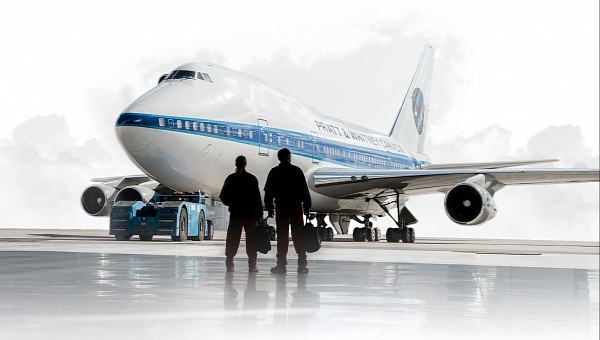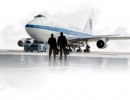Rolls-Royce, Pratt & Whitney, and Virginia Tech will all join forces to improve performance for both commercial and military aviation operations, by focusing on a delicate matter that seriously affects aero-engines.
New-generation airliners, helicopters, and fighter jets seem invincible, but some of their greatest enemies are hiding in plain sight. We’re talking about environmental factors such as raindrops and sand particles, which have the power to cause incredible damage, resulting in very high costs.
A new collaboration between the two aviation giants Rolls-Royce and Pratt & Whitney, plus Virginia Tech, will address the damaging effects of so-called airborne particles (mainly sand and dust) on aircraft engines.
Believe it or not, this phenomenon known as “particle ingestion” is one of the main factors leading to engine degradation, because it speeds up engine aging, and reduces performance over time.
With air travel expanding all around the world, for both commercial and military operations, this issue of environmental contaminants has only gotten worse. And it results in losses worth hundreds of millions of dollars every year, according to Rolls-Royce.
This is also not a simple problem, but one that requires a complex approach. Research must focus not only on the chemistry of environmental contaminants and weather prediction, but also on engine design, maintenance procedures, and adapted fleet operations.
At first, this new collaboration will use smaller engine tests, performed on the Rolls-Royce M250. Initially developed as the T63 for the U.S. Army, the 250 turboshaft now includes an entire family of small turbine engines, powering some of the most popular helicopters in the world.
The feedback from these tests will later be applied in large engine test programs. A multidisciplinary group will benefit from Virginia Tech’s infrastructure and expertise in order to advance the research that could dramatically improve engine performance in the future.
A new collaboration between the two aviation giants Rolls-Royce and Pratt & Whitney, plus Virginia Tech, will address the damaging effects of so-called airborne particles (mainly sand and dust) on aircraft engines.
Believe it or not, this phenomenon known as “particle ingestion” is one of the main factors leading to engine degradation, because it speeds up engine aging, and reduces performance over time.
With air travel expanding all around the world, for both commercial and military operations, this issue of environmental contaminants has only gotten worse. And it results in losses worth hundreds of millions of dollars every year, according to Rolls-Royce.
This is also not a simple problem, but one that requires a complex approach. Research must focus not only on the chemistry of environmental contaminants and weather prediction, but also on engine design, maintenance procedures, and adapted fleet operations.
At first, this new collaboration will use smaller engine tests, performed on the Rolls-Royce M250. Initially developed as the T63 for the U.S. Army, the 250 turboshaft now includes an entire family of small turbine engines, powering some of the most popular helicopters in the world.
The feedback from these tests will later be applied in large engine test programs. A multidisciplinary group will benefit from Virginia Tech’s infrastructure and expertise in order to advance the research that could dramatically improve engine performance in the future.







